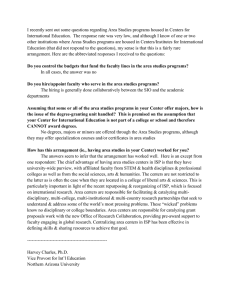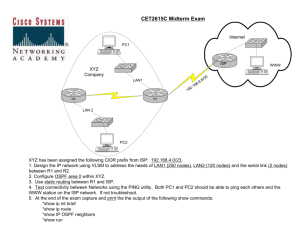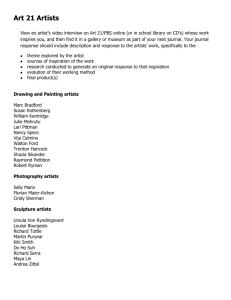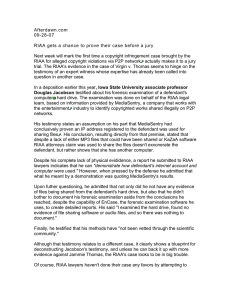RIAA and Music Sharing - California State University San Marcos
advertisement
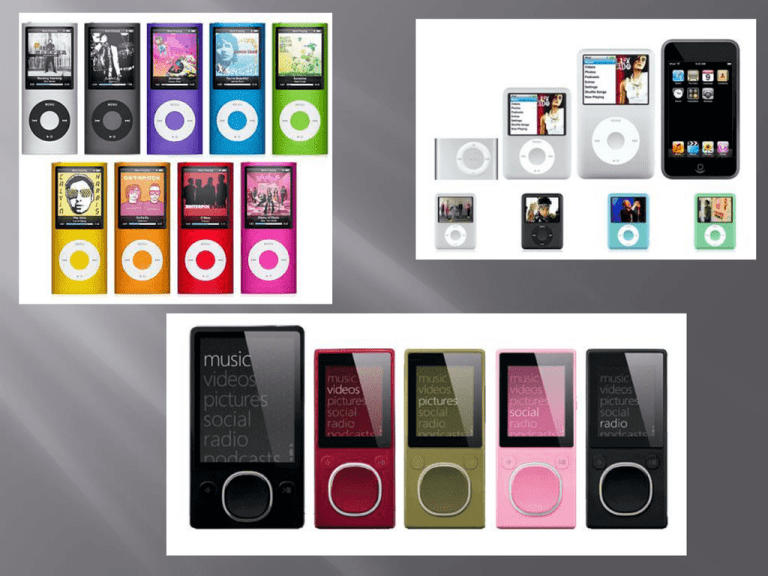
Jolly Phan Cal State University of San Marcos Professor Fang Fang IS News 11/12/2009 They represents the U.S. recording industry Their mission is to foster a business and legal climate that supports and promotes their members' creative and financial vitality the record companies that create, manufacture and/or distribute some 85 percent of all legitimate sound recordings produced and sold in the United States They protect intellectual property rights worldwide and the First Amendment rights of artists; conducts consumer, industry and technical research; and monitors and reviews state and federal laws, regulations and policies EMI Sony Music Entertainment Universal Music Group Warner Music Group Silver: 100,000 Gold: 500,000 Platinum: 1,000,000 Multi-Platinum: 2,000,000+ (recertified at each million-unit interval) Diamond: 10,000,000 anti-piracy efforts is to protect the ability of the recording industry to invest in new bands and new music and, in the digital space, to give legal online services a chance to flourish. Piracy-When you go online and download songs without permission, you are stealing. “illegal downloading of music” Music theft can take various forms: individuals who illegally upload or download music online, online companies who build businesses based on theft and encourage users to break the law, or criminals manufacturing mass numbers of counterfeit CDs for sale on street corners, in flea markets or at retail stores. Music theft has hurt the music community, with thousands of layoffs, songwriters out of work and new artists having a harder time getting signed and breaking into the business, taking on the many artists, songwriters, musicians, record label employees and others Institute for Policy Innovation concluded that global music piracy causes: $12.5 billion of economic losses every year 71,060 U.S. jobs lost, a loss of $2.7 billion in workers' earnings loss of $422 million in tax revenues $291 million in personal income tax $131 million in lost corporate income and production taxes. Proposed network filters that search for copyright violations Proposed to put spyware on users on computers Monitor their networks for illegal file sharing by its customers. The way this will work is that the RIAA will alert an ISP that a customer appears to be file sharing. The ISP will then notify the person that he or she appears to be file sharing. If the behavior by the customer doesn't change, then more e-mails will be sent. If the customer ignores these e-mails, then the ISP may choose to suspend the person's service. If all else fails, they can choose to discontinue service. Your Computers will be spying on you ISP is monitoring you Therefore breaking the right to Privacy and Security and Internet Uses How is downloading music different from copying a personal CD? Criminal penalties for first-time offenders can be as high as five years in prison and $250,000 in fines. Civil penalties can run into many thousands of dollars in damages and legal fees. The minimum penalty is $750 per song. RIAA Homepage: http://www.riaa.com CNET Tech News: http://news.cnet.com/ CNN Technology News: http://www.cnn.com/Tech/

